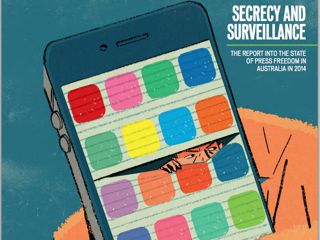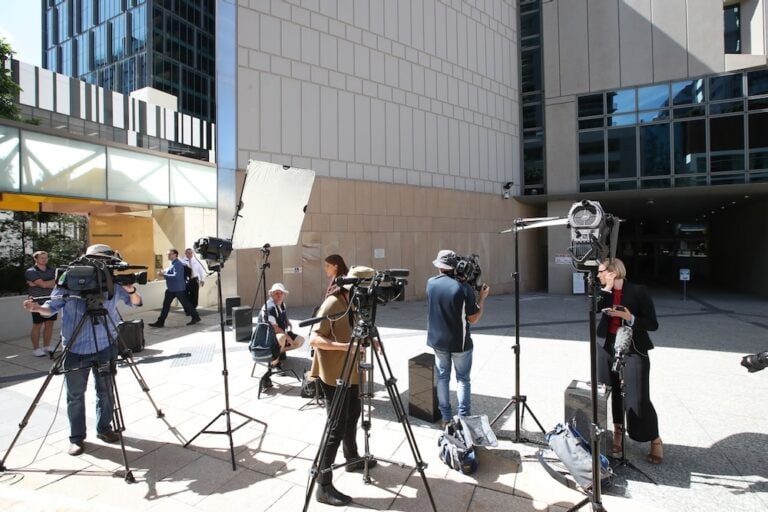Over the past year, the threats to press freedom have become more insidious in Australia. Metadata surveillance will make it increasingly difficult for journalists and confidential sources to safely interact without the source's identity, and the story itself, being compromised. Journalists are also faced with barriers to the free flow of information.
Foreword to the report, by Christopher Warren, MEAA Federal Secretary.
A year ago, the press freedom debate in Australia centred on protecting confidential sources. Up to seven MEAA members were facing court action brought, in the main, by the rich and powerful going on fishing expeditions to find out the sources for various news stories, and what other information those sources may have passed on to the journalists.
Thankfully, many of these legal threats abated. But the core issue remains: the shield laws designed to protect journalists observing their obligation, under MEAA’s Journalist Code of Ethics, to not reveal confidential sources have failed. Shield laws are not uniform across the country and they still require enormous legal expense before they come into effect.
Over the past year, the threats to press freedom have become more insidious. Revelations by whistleblower Edward Snowden suggest that metadata surveillance will make it increasingly difficult for journalists and confidential sources to safely interact without the source’s identity, and the story itself, being compromised.
Journalists are also faced with barriers to the free flow of information, when the military and the government decide to tell the public absolutely nothing, and instead engage in stonewalling.
And then there’s miner-turned-politician Clive Palmer, who in February 2014 had a journalist ejected from a press conference because the mining tycoon turned politician doesn’t “recognise” the publication the journalist works for – The Australian newspaper. The old principle of “one in, all in” applies and if anyone seeks to eject a journalist from a press conference then the remaining media should deem the press conference concluded and depart.
Snowden’s leaks in June last year, which confirmed the extent of metadata surveillance, have had important implications for press freedom. Snowden revealed that the US National Security Agency (NSA) stores the online metadata (transactional information) from the phone calls and emails of millions of internet users.
For journalists wanting to contact confidential sources, receive information from them, store it and prepare a new story using that information – that presents a massive threat to their ability to protect the identity of their source and get the story out.
The change in government has also led to a change in the flow of information in Australia, particularly with regard to Operation Sovereign Borders, the militarisation of Customs and immigration activities. Now there’s a point-blank refusal to discuss what Customs and the Australian Defence Force are doing in our name.
It seems public servants don’t care much for the public’s right to know.
The attack on asylum seekers at the detention centre on Manus Island in February is also shrouded in mystery. Media access to detention centres remains problematic, and governments in Australia, PNG and Nauru are not particularly cooperative.
In recent months the assaults on press freedom have stepped up. The Australian Federal Police sent more than 30 of its officers to raid several offices of Seven West in the hunt for documents pertaining to a deal to pay Schapelle Corby’s family for an interview.
The government has turned its attention to public broadcasting, demonstrating an extraordinary degree of government interference in editorial independence. This has been coupled with new moves that threaten to slash the budget of the ABC and SBS.
When it comes to press freedom the biggest battles are often fought by courageous individuals for principles that assist and protect us all. The plight of Australian journalists Peter Greste and Alan Morison are a case in point – as are the many journalists imprisoned or threatened because of their journalism. They need all the support we can give them.



